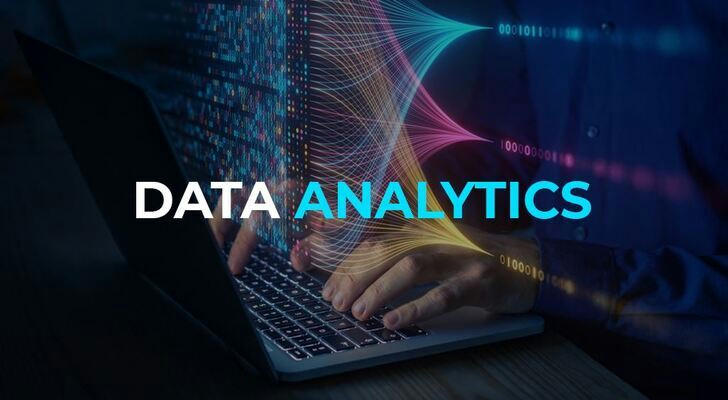Career Shift to Data Analysis? This Course Is Where You Begin

A career shift is both an exciting and challenging journey. The decision to pivot into a new field, especially one as dynamic as data analysis, requires careful planning and the right resources. Data analysis, with its growing demand across industries, offers an opportunity to not only build a rewarding career but also to be part of a revolution in how businesses and organizations make decisions. The key to making this transition successfully begins with the right course—one that provides the technical skills, practical experience, and analytical mindset needed to thrive in the data-driven world.
Understanding Data Analysis: What You Need to Know
Data analysis is at the heart of many decision-making processes today. From identifying market trends to improving customer experience, data analysts help organizations turn raw data into actionable insights. The role involves collecting, cleaning, and interpreting large sets of data, as well as presenting the findings in a clear, concise way.
A recent survey by IBM predicts that by 2025, the demand for data professionals will increase by 28%, with data science and analysis being the most sought-after skills. This growing demand highlights the need for qualified professionals who can not only handle data but also understand how to extract value from it. For those looking to switch careers, this presents a tremendous opportunity, but success in this field requires learning the right tools and techniques through a structured, comprehensive course.
What Makes a Good Data Analysis Course?
Choosing the right course can be daunting, but understanding the essential elements will make the process easier. Here are some key factors to consider when selecting a data analysis program:
1. Comprehensive Curriculum and Hands-On Learning
A top-quality data analysis course should cover both the theory and practical application of key concepts. It should offer hands-on projects and real-world datasets to work with. According to a 2021 report from the National Skills Coalition, employers are looking for professionals who can demonstrate their ability to apply knowledge in real-world contexts, not just in a classroom setting.
Courses that feature case studies, interactive assignments, and problem-solving challenges will allow you to build a portfolio that showcases your ability to think critically and use the tools of the trade. These projects should simulate the types of tasks you would encounter on the job, giving you the confidence to handle real-world data once you enter the workforce.
2. Exposure to Key Tools and Techniques
To be an effective data analyst, you need to be proficient in a variety of tools. The foundation of most data analysis work is Excel, SQL, and data visualization tools like Tableau or Power BI. For those aiming for a more advanced career, knowledge of programming languages like Python or R is essential.
A good course will teach you how to work with these tools and will also delve into important techniques like data wrangling (cleaning and organizing data), statistical analysis, and data visualization. As stated in a report by Burning Glass Technologies, "Analytical skills, especially in tools like Python, SQL, and Tableau, are among the most in-demand competencies across industries."
3. A Focus on Analytical Thinking
While tools are important, data analysis is ultimately about analytical thinking and problem-solving. A quality course should teach you how to ask the right questions, form hypotheses, and draw meaningful conclusions from data. According to a 2020 study by McKinsey, "companies that use data-driven decision-making have 23 times more chances to acquire customers, 6 times more chances to retain customers, and 19 times more chances to be profitable." The ability to think critically and strategically about data is what sets the best analysts apart from the rest.
A course that emphasizes developing a data-driven mindset will teach you how to approach problems creatively and systematically, equipping you with the skills necessary to turn complex data sets into clear and actionable insights.

Building a Strong Portfolio: A Key to Success
One of the best ways to demonstrate your skills to potential employers is by creating a portfolio of your work. A well-constructed portfolio showcases your ability to apply your knowledge to solve real-world problems and to communicate your findings effectively.
The projects you complete during your course will serve as the foundation of your portfolio. Make sure to include a variety of examples that highlight different aspects of data analysis—such as data cleaning, visualization, and predictive modeling. Your portfolio should not only showcase your technical skills but also your ability to explain the insights you've uncovered in a way that non-experts can understand.
According to a study by LinkedIn, "employees with a demonstrated ability to communicate data insights clearly are 5 times more likely to be promoted." A good course will teach you not just how to analyze data, but also how to present it in a way that makes a significant impact.
Networking and Career Support: Leveraging Your Course for Job Success
A good data analysis course does more than teach you technical skills—it also prepares you for the job search. Many courses offer career support, such as resume reviews, mock interviews, and access to job boards or alumni networks. These resources can help you transition into your new career more smoothly.
Networking is another important element of career success. By attending industry events, joining relevant online communities, and connecting with professionals in the field, you can increase your visibility and stay up to date with industry trends. Data analysis is a highly collaborative field, and having the right connections can open doors to job opportunities and mentorship.
The Path Forward: Continuous Learning and Growth
Even after completing a data analysis course, the learning doesn’t stop. The field is constantly evolving, with new tools, techniques, and best practices emerging all the time. To stay competitive, you must continue to learn and adapt.
Engage with the data community by participating in forums, attending webinars, and practicing with new datasets. As you gain experience, consider expanding your skills to include areas like machine learning or artificial intelligence, which are becoming increasingly relevant in the world of data analysis.

Final Thoughts
Making a career shift to data analysis is a bold and rewarding choice. The field is growing rapidly, and with the right training, you can position yourself for success. A quality data analysis course will provide you with the technical skills, critical thinking abilities, and career support you need to make the transition. It’s the first step in a journey that could transform your career and open up countless new opportunities. Take the plunge—your future as a data analyst starts now.
